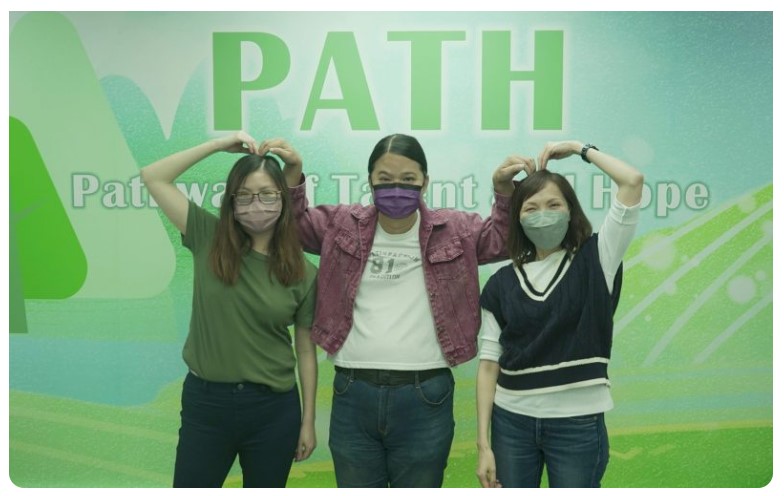Story
Heartfelt support for the autistic community
“In those days, I often asked myself ‘why I have so many social communication issues that others don’t seem to have? Am I abnormal?’” In his 40s, Fishball (alias) talked with us causally with a smile on his face. It seems incredible that 4 years ago he was completely different. “I was diagnosed with autism after the assessment”.
Fishball recalled that he had not been able to interpret accurately what the others were trying to say. “They felt my speech disorganised. I didn’t get what they said, and they didn’t get what I said.” As an autistic person, interpreting tones and implications is a big problem. “It was impossible for me to understand things that are implied but not stated.”
The dark and confused days
Being autistic greatly affected Fishball’s job and emotions. At that time his job required him to handle customer phone calls, but he was at a loss understanding what customers wanted to say. “I simply didn’t get why I have complained after I helped customers to solve their issues.” Later he lost his job – his living standard dropped and social interactions decrease. “Years ago, I visited a friend who was jobless for a long time. From the condition of his home, it seemed that he has lost the ability to take care of himself. I didn’t expect that one day I would find myself in the same plight.”
Fishball contacted The Salvation Army PATH Centre by himself at the end of 2020 and became a member. Yvonne, Fishball's social worker, recalled that Fishball was despair and felt hopeless. His thoughts were negative due to the social communication failures in the past and he had difficulties getting into the social circles which affected his emotions a lot. After knowing about Fishball’s situation, the team from the Centre came up with activity plans and goals for him, e.g., providing emotional support and seeking chances for him to express his talents.
Rediscovering true self in photography
Photography has been a great passion of Fishball. “I can express my thoughts and potentials through images”. His talents show in his works. Macy, the occupational therapist that supported Fishball, felt that Fishball had the motivation to return to workplace after meeting him. She then arranged him to try working in various simulated workplaces in order to train his work capability. Fishball’s performance was excellent – he took up the post of volunteer photographer for Centre's events, and he has hosted photography events and 4 photo classes when he was a trainee in The Salvation Army Citizens Talent Advancement Project Kwun Tong Centre.
Macy said being in a working mode allowed Fishball to enhance her communication ability and helped him to rebuild his life. The recognition of his talents from others also improved his emotional health.
See the light of hope together
Fishball has now returned to the workplace as he was employed by an external organisation. He is also working on his plan to turn his photo works into merchandise. Yvonne thinks that the bigger change in Fishball is that he now has a clear vision and positive outlook on his life. To help friends with autism transit from despair help-seekers to active helpers, Yvonne believes the key is to find a communication approach that they can feel comfortable. “It does not necessarily need a lot of techniques. What’s important is to find their way of communication.”
She attributed the achievement of Fishball to himself. “This nice journey and the great transition are possible because he came to us in the first place and took the opportunities that we offered.”
In fact, Fishball had joined programmes of other organisations, but he was unable to find a sense of belonging there. He can feel that the staff of PATH Centre really get to know about the needs of autistic persons and they give support with heart and sincerity, and this makes him want to contribute back to the Centre. “They have taken good care of me; they were there for me every time when I needed them,” Fishball is grateful for the help he received from the staff.
The Salvation Army PATH Centre
The Salvation Army PATH Centre is a supporting centre for people with autism subvented by the Social Welfare Department. The Centre mainly provides services to persons with autism spectrum disorder and their families, and provides autism-related professional support and consulting services to subvented rehabilitation and social welfare service units. The Centre is named “Tin-Hey” in Chinese, with the meaning of fostering natural talents and a life with hope. The name PATH is an acronym for
“Pathway of Talent and Hope”.
The Centre serves with a people-oriented approach. We believe each person with autism has his/her unlimited potential. We respect their rights of making choices for their lives and together we work towards a community environment where they enjoy equal opportunities and participation.







